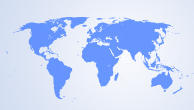Berlin & Beyond, the annual German Film Festival sponsored by Goethe-Institut, presented an impressive array of recent film productions from Germany, Austria and Switzerland. Particularly noteworthy were the epic Ludwig II, directed by the late Peter Sehr, Two Lives, Germany's 2014 Oscar entry by Georg Maas, and Measuring the World (Die Vermessung der Welt), based on Daniel Kehlmann's 2005 bestseller. After having read the book Die Vermessung der Welt and subsequently having watched the film, bibliophile Ana Elsner made these observations: "The novel is a well crafted and highly imaginative amalgam of fact and fiction, written with a beguiling wit. Kehlmann calls his process "the inventing of truth". - In this semi-historical expose the author puts his own spin on chronicling and contrasting the lives of two brilliant and eccentric 19th-century German scientists, the naturalist and geographer Alexander von Humboldt (1769-1859) and the mathematician and astronomer Carl Friedrich Gauss (1777-1855), with a focus on how their life paths diverged in their individual approaches to the challenge of measuring the world.
As is rarely the case, the author of the book, Daniel Kehlmann, was also the screenwriter, resulting in the closest adherence of the cinematic version to the original dramatic tension and overall tenor of his book.
The cinematograph by Slavomir Idziak is beautifully executed and serves to effectively underline the narrative."
:
.
Among the Festival guests were composer Vincent Russo and international poet Ana Elsner.
"Screenwriting and writing poetry are all about generating pictures that play either in front of your eyes or in the mind's eye. These pictures can be brought to life through cinematography as well as through our own visualization of the imagery expressed in the spoken and the written word.said Ana Elsner in a conversation following the screening of Daniel Kehlmann's 'Die Vermessung der Welt'.
Whether received via one's optical nerve, or perceived by one's imagination, rich and vivid imagery is perhaps the most impactful of all communication and stirs us the most,"
.
Vincent Russo, a friend of the poet, added: "Music also can convey powerful images just as film and poetry do. In my compositions I paint pictures using the tools of instrumentation and orchestration."
.
Ana Elsner summarized her appreciation of the Festival program,
"My compliments to Goethe-Institut, especially to Sophoan Sorn, Sabine Erlenwein and Jale Yoldas, on enriching the American cultural community by showcasing a panoply of outstanding films from the German speaking world at the 2014 Berlin & Beyond Film Festival..
My personal highlight was the opportunity to watch the film version of Daniel Kehlmann's 'Die Vermessung der Welt' ('Measuring the World'), a most successful adaptation of the original novel."
.
~ Go beyond Berlin:
* Click here to go beyond Berlin and.
visit bilingual poet Ana Elsner on the web *
Other Links
^ Review
^ Vincent Russo
^ Ana Elsner
^ Goethe-Institut
.



 The German word for groceries is Lebensmittel - 'Means for [sustaining] life'. This definition of purpose is being bastardized and re-interpreted as 'Means for [making] profit'.
The German word for groceries is Lebensmittel - 'Means for [sustaining] life'. This definition of purpose is being bastardized and re-interpreted as 'Means for [making] profit'. 


 Click here to go to the TASTE THE WASTE website and monitor the international MOVEMENT TO STOP THE WASTING OF FOOD
Click here to go to the TASTE THE WASTE website and monitor the international MOVEMENT TO STOP THE WASTING OF FOOD International poet Ana Elsner participates in the global 100 Thousand Poets For Change marathon at the following venue:
International poet Ana Elsner participates in the global 100 Thousand Poets For Change marathon at the following venue:

 A French language interdisciplinary publication with limited English text
A French language interdisciplinary publication with limited English text






 : Watch a clip of Master and Margarita, the Movie
: Watch a clip of Master and Margarita, the Movie


 Another tribute: click to read a poem by Ana Elsner honoring fellow poet Tony Vaughan (1947-2008)
Another tribute: click to read a poem by Ana Elsner honoring fellow poet Tony Vaughan (1947-2008)
 Explore the World of poet Ana Elsner -
Explore the World of poet Ana Elsner -

 FIND ME
FIND ME
 Ana Elsner reads for Ambush Review at San Francisco art gallery - Click to watch video
Ana Elsner reads for Ambush Review at San Francisco art gallery - Click to watch video




 : any text
: any text

 - Media -
- Media -

